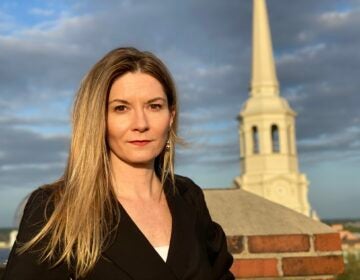After months of public feedback and controversy, Philly’s Mütter Museum opens new exhibition
The new exhibit is “intentionally rough around the edges” and asks for more feedback.
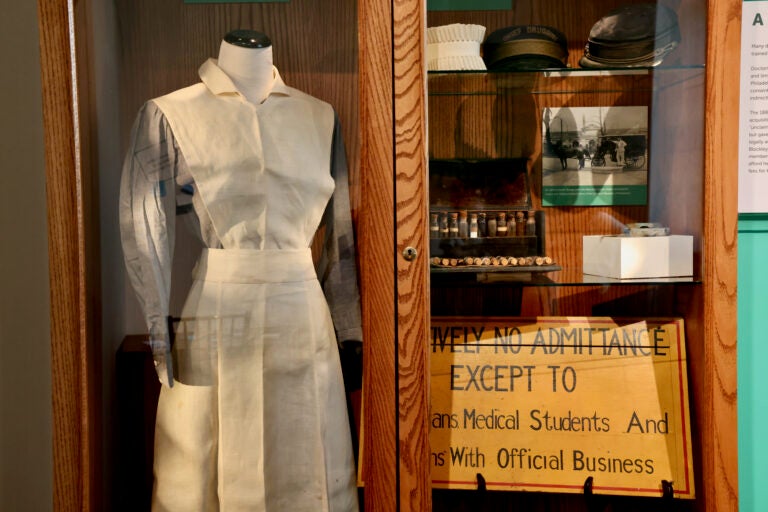
A nursing uniform and other artifacts from the Blockley Almshouse, which provided medical care for the impoverished in Philadelphia from 1835 to 1919, are displayed in the ''Postmortem Project'' exhibit. (Emma Lee/WHYY)
From Philly and the Pa. suburbs to South Jersey and Delaware, what would you like WHYY News to cover? Let us know!
Philadelphia’s Mütter Museum has been doing some soul-searching in the past few years — to determine its role and mission, and to have a broader conversation about displaying human remains. After months of focus groups, open houses, and a contentious town hall meeting last year, the museum opens its latest exhibit on Saturday, May 25.
There are objects on display, such as a nurse’s uniform from the Blockley Almshouse, a hospital for the poor that became Philadelphia General Hospital in 1902. Some of the museum’s human specimens and remains come from patients, whom doctors treated in exchange for having access to their bodies after death, according to Mütter Museum executive director Kate Quinn.
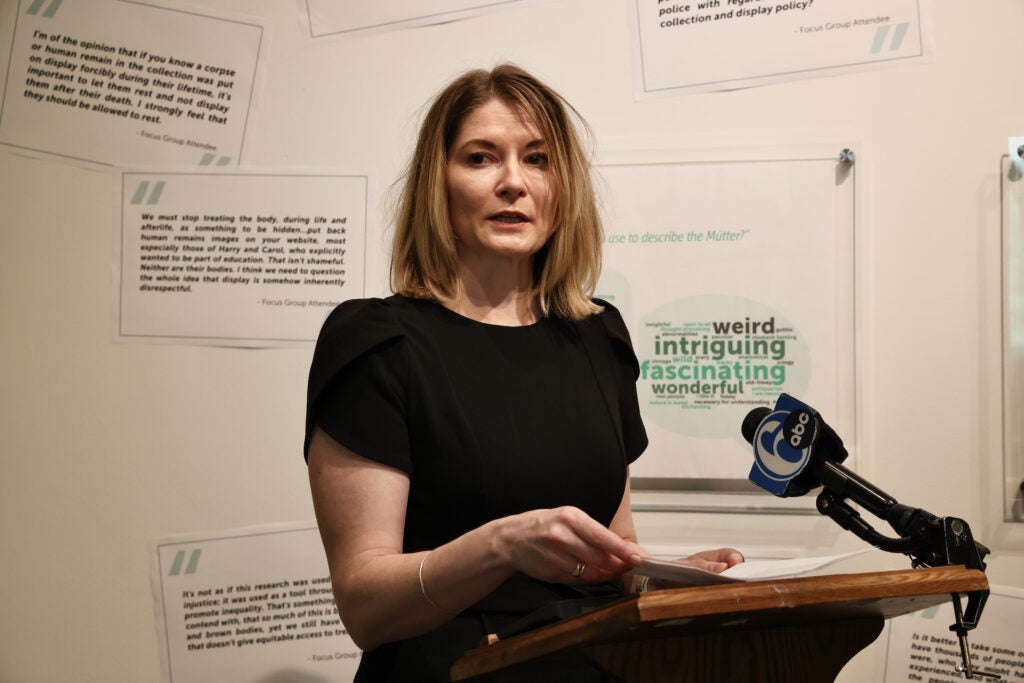
There are also big hanging rolls of butcher paper and Post-It notes asking visitors to weigh in on questions like what the museum should do with the human remains in their collection. There’s a corner with printed and bound copies of human remains policies from other institutions like Harvard University, the British Museum, and the American Association for Anatomy for visitors to read.
That’s because the point of the exhibit, which is called the Postmortem Project, is to ask people to respond, said lead interpretive planner Stacey Mann.
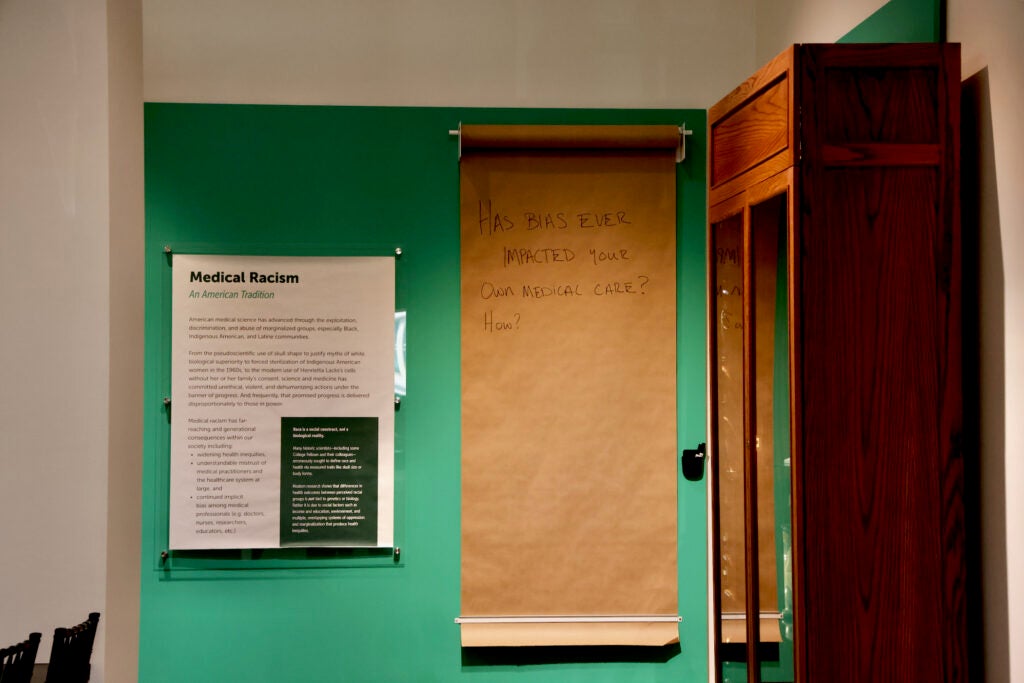
“It’s intentionally rough around the edges because it is a prototype,” she said. “A lot of organizations talk about … asking hard questions and digging into the history of their institutions and their collections … this is probably the first institution that I’ve worked with who is doing this work very intensely and also doing it very publicly and really publishing … what they’re finding.”
As an example, she points to a timeline, which is the first thing a visitor sees. It puts the history of the museum and the College of Physicians of Philadelphia, which runs the museum, in context.
“There’s a part kind of in the middle in … the mid-1800s where the college really … goes on this blitz to collect things, and some of the stories around how those things were collected and came into the collection are not great.”
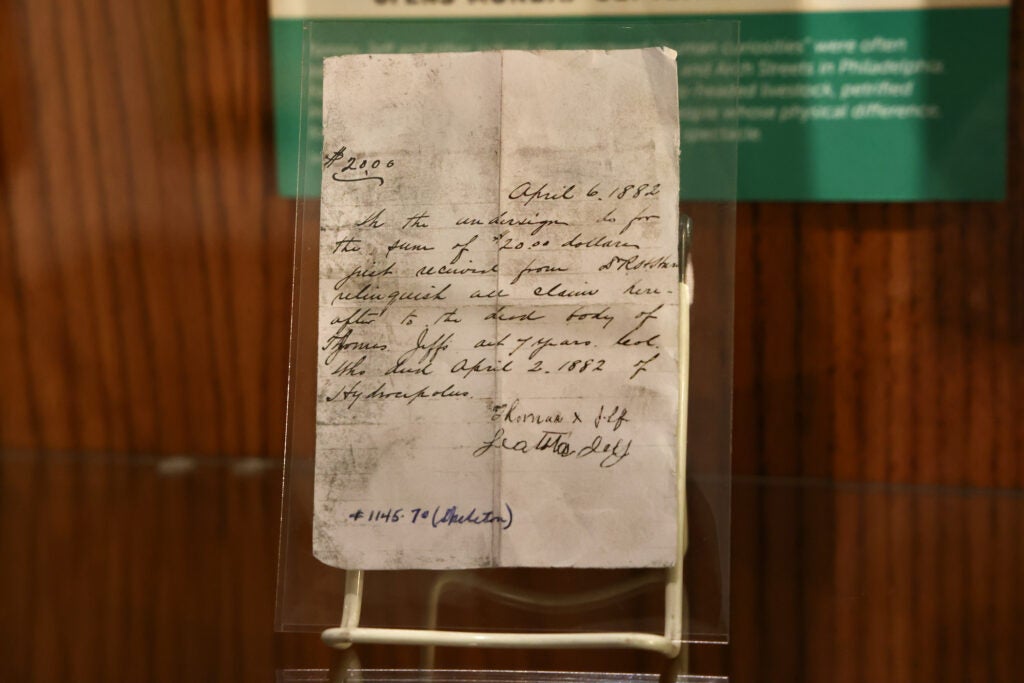
The new exhibit has three sections: Philadelphia as the birthplace of American Medicine, the Blockley Almshouse, and the relationship between medical practice and race in Philadelphia and the U.S.
The Postmortem project started almost as soon as executive director Kate Quinn started working at the museum in late 2022. In early 2023, she made the controversial move to take down the museum’s YouTube videos and online exhibits, which led to a vocal backlash from fans of the museum, including a petition to fire her. The CEO of the College of Physicians resigned after just two years into her tenure. Many staff also left the museum.
A lot of people came to the town hall meeting for the Postmortem Project late last year. Some aired their grievances about the museum’s new direction, and some pointed out that museums are not hermetically sealed and should change to reflect updated ethical practices in the field.
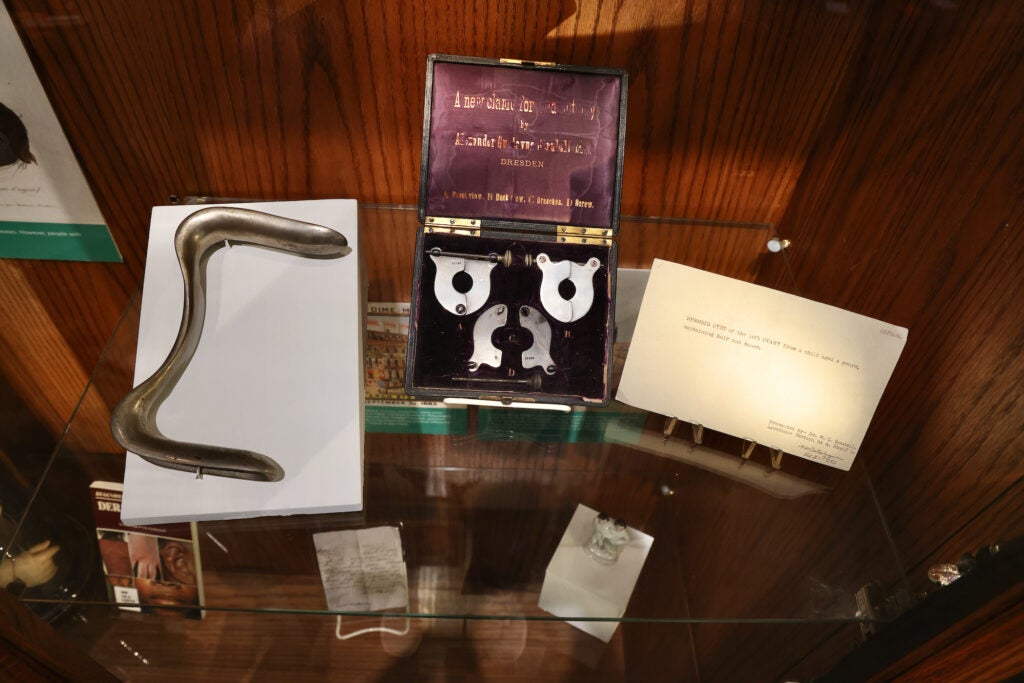
After that, the museum organized open houses and smaller focus groups. A wall of the exhibit is dedicated to showing the feedback from these meetings with printed quotes, word clouds, and video interviews.
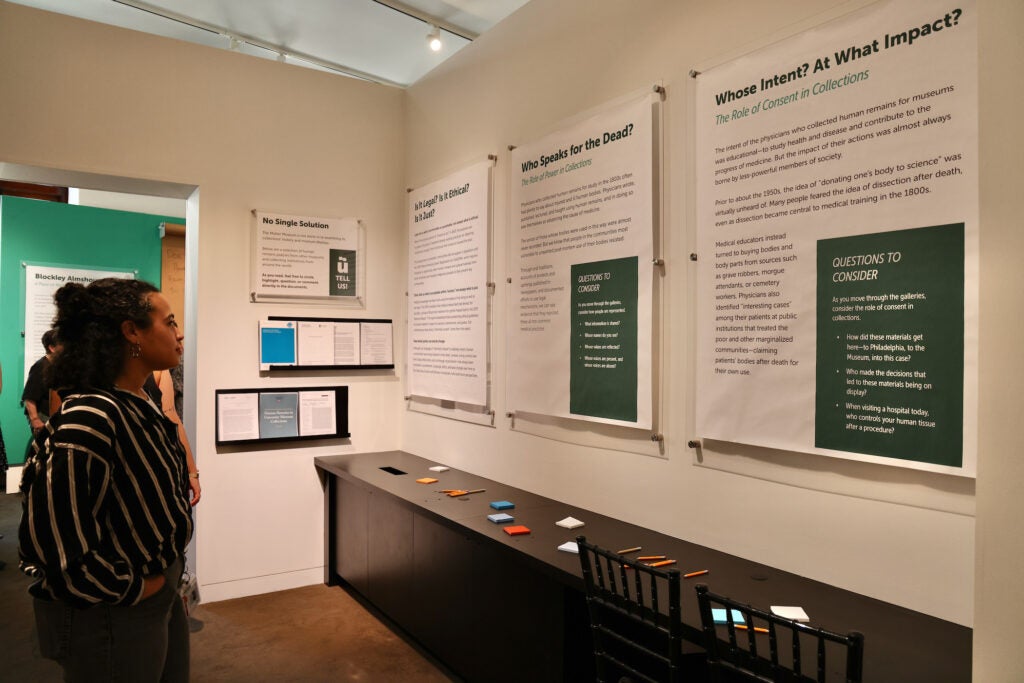
Biomedical Engineer Rachel Lance flew from North Carolina to Philadelphia for the town hall, and also attended one of the focus group meetings. She said the organizers thoughtfully put together examples of the questions the museum was grappling with, ranging from puns that had been made around pieces in the museum, to patients who had been made a spectacle of during life and had been on display as exhibits in the museum.
Monica Montgomery led community engagement for the Postmortem Project. She said she is intentionally trying to reach people who are not often represented in museums in large numbers, like communities of color, people who are unaware of the cultural offerings in Center City, or people whose native language is not English.
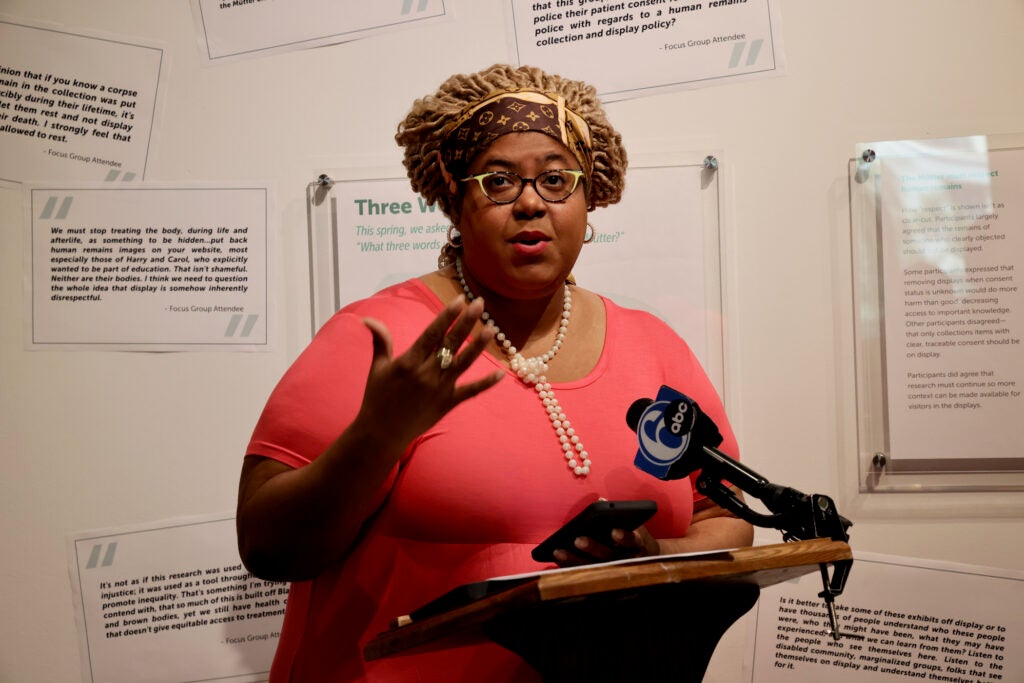
“In any given month, I’m sending out hundreds of emails, I’m calling organizations, I’m meeting people and saying, ‘Hey, we have this process going. Have you heard of the Mütter? Do you know what they show? What do you think about that?”
She said it has sometimes been challenging.
“There are people with religious beliefs and other feelings that are like, ‘Oh is that going to be where the human remains are? Oh, I’m not gonna come.'”
She said she has also received backlash, but feels like everyone involved is driven by goodwill and care for the museum.
“Whether it’s activists that have been working to see certain things preserved how they are, or groups that want to see things change in the spirit of progress and consent, there’s a sense of respect and regard and general goodwill for what is happening and what could happen.”
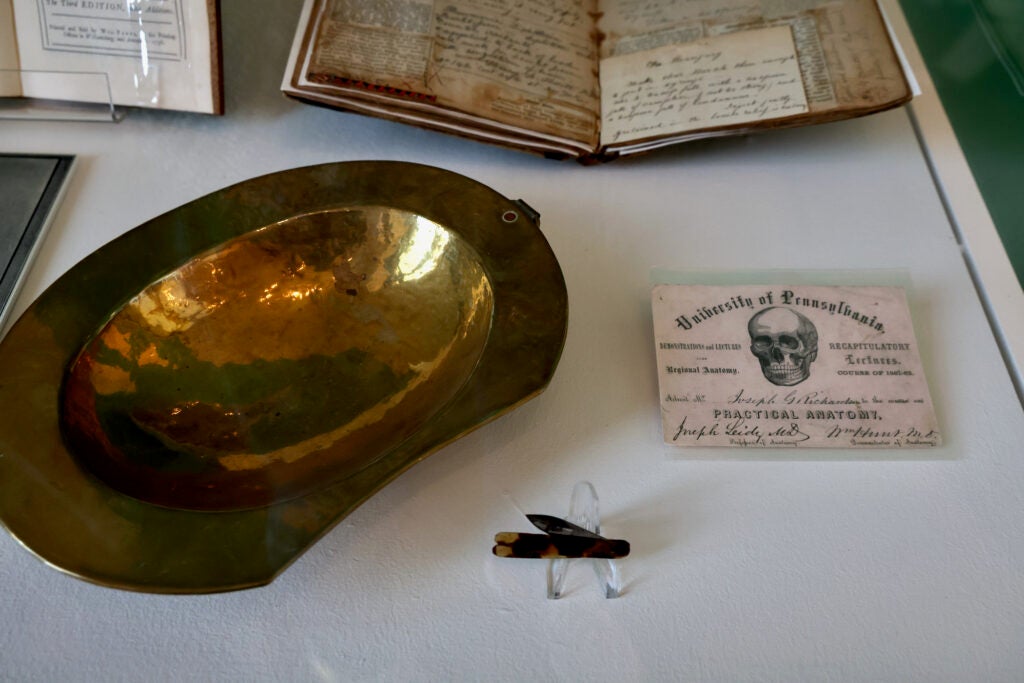
Executive director Kate Quinn says the project took inspiration from a similar project the Penn Museum did in the 2010s when she worked there. Back then, the Penn Museum organized public meetings, forums, and surveys of museum visitors to ask people for feedback to revamp their African gallery, which at the time, had not been updated in more than two decades. It led to a redesigned African Gallery that opened in 2019, with exhibits that show connections to modern African culture and explain how artifacts ended up in Philadelphia.
“Museums are held in the public trust, and we are here to serve community members,” Quinn said. “And so one of the things that we need to understand is what they don’t understand or where we have, in their mind, a very strong opportunity to provide additional context and education informally within a city and with our objects.”
More sections will come in June: one that updates the museum’s Iron Lung exhibit and details the history of treating polio in the U.S., an exhibit on vaccines, and an exhibit on living with disability.
There will also be more open houses and focus group meetings to collect more feedback.

Get daily updates from WHYY News!
WHYY is your source for fact-based, in-depth journalism and information. As a nonprofit organization, we rely on financial support from readers like you. Please give today.



